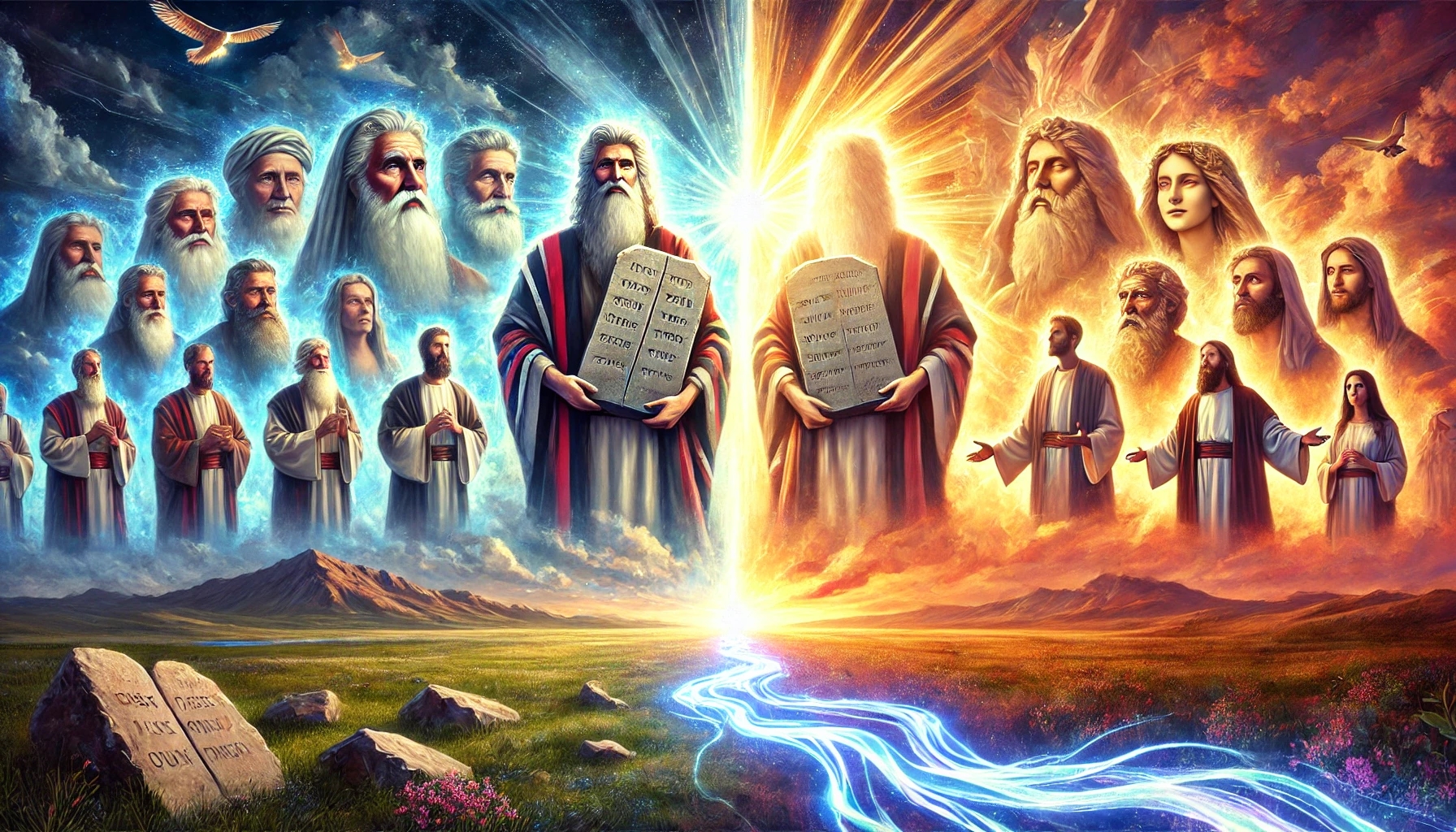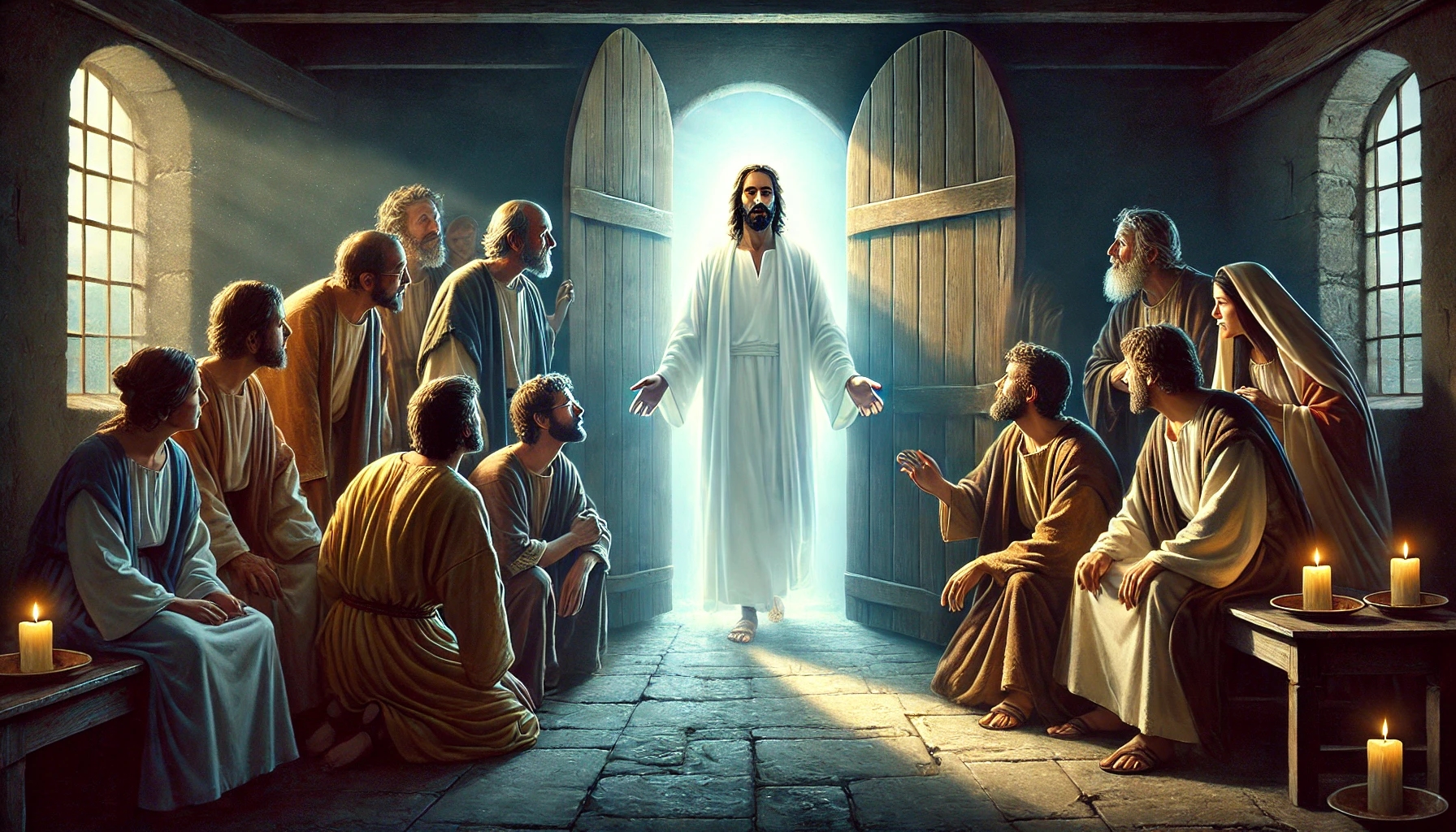
December 29, 2024
DAILY BIBLE READING – 2 Corinthians Chapter 3
1 Do we begin again to commend ourselves? or need we, as some others, epistles of commendation to you, or letters of commendation from you?
2 Ye are our epistle written in our hearts, known and read of all men:
3 Forasmuch as ye are manifestly declared to be the epistle of Christ ministered by us, written not with ink, but with the Spirit of the living God; not in tables of stone, but in fleshy tables of the heart.
4 And such trust have we through Christ to God-ward:
5 Not that we are sufficient of ourselves to think any thing as of ourselves; but our sufficiency is of God;
6 Who also hath made us able ministers of the new testament; not of the letter, but of the spirit: for the letter killeth, but the spirit giveth life.
7 But if the ministration of death, written and engraven in stones, was glorious, so that the children of Israel could not stedfastly behold the face of Moses for the glory of his countenance; which glory was to be done away:
8 How shall not the ministration of the spirit be rather glorious?
9 For if the ministration of condemnation be glory, much more doth the ministration of righteousness exceed in glory.
10 For even that which was made glorious had no glory in this respect, by reason of the glory that excelleth.
11 For if that which is done away was glorious, much more that which remaineth is glorious.
12 Seeing then that we have such hope, we use great plainness of speech:
13 And not as Moses, which put a veil over his face, that the children of Israel could not stedfastly look to the end of that which is abolished:
14 But their minds were blinded: for until this day remaineth the same vail untaken away in the reading of the old testament; which vail is done away in Christ.
15 But even unto this day, when Moses is read, the vail is upon their heart.
16 Nevertheless when it shall turn to the Lord, the vail shall be taken away.
17 Now the Lord is that Spirit: and where the Spirit of the Lord is, there is liberty.
18 But we all, with open face beholding as in a glass the glory of the Lord, are changed into the same image from glory to glory, even as by the Spirit of the Lord.
King James Version. Public Domain
Commentary
Introduction
In the third chapter of the second letter to the Corinthians, Paul describes the glory of the ministry under the New Covenant. He compares the Old and the New Covenant, highlighting how the New Covenant, through the Spirit of God, brings greater glory and freedom. In doing so, Paul demonstrates that true transformation and understanding occur through the Lord’s Spirit, not through the adherence to letters and laws.
Commentary
Paul begins by referring to the Corinthians as a “letter of Christ” – a living testament of his ministry, written not with ink but with the Spirit of God on hearts. Here, he emphasizes the inner change effected by the New Covenant. The ability to perform such a ministry does not come from human strength but from God, who imparts life through the Spirit, in contrast to the letter of the law, which brings death.
The comparison with Moses and the veil shows that the glory of the Old Covenant was limited. While Moses wore a veil to conceal the clarity, Paul speaks of the veil being removed in the New Covenant once someone turns to Christ. This makes clear that the New Covenant brings openness, freedom, and enduring glory.
A central verse is: “Where, however, the Spirit of the Lord is, there is freedom.” This freedom is not only from the regulations of the law but also an inner liberation for transformation into the image of Christ. Paul describes the progressive transformation of believers, who, through the Lord’s Spirit, grow into the glory of God.
Summary
2 Corinthians 3 shows the transition from the Old Covenant to the New Covenant, from law to Spirit, from condemnation to righteousness, and from veil to revelation. Paul explains that the ministry of the Spirit possesses a greater and enduring glory, transforming believers into freedom and into the image of Christ. The text calls for hope and joy, as the Spirit of God enables access to true glory and freedom in Christ.
![]()

WEEKLY SPIRIT OF PROPHECY READING – Ellen White | The Desire of Ages
Chapter 83—The Walk to Emmaus
This chapter is based on Luke 24:13-33.
Read online here
Commentary
Introduction
The chapter “The Walk to Emmaus” depicts one of the most deeply moving events following the resurrection of Jesus, as described in Luke 24:13-33. Two disciples encounter the risen Christ on their way to Emmaus but do not recognize him immediately. This event illustrates the importance of scripture, the necessity of faith, and the transformative power of the knowledge of Jesus.
Commentary
The disciples are wandering in deep disappointment and despair, unable to comprehend the significance of the events surrounding Jesus’ crucifixion and the reports of his resurrection. Their lack of understanding and faith reflects the human need to recognize God’s plan in difficult times. Jesus approaches them unrecognized, listens to their sorrow, and begins to explain the Old Testament scriptures. This teaching conversation shows that Christ is present throughout the entire Bible and that his mission is confirmed by the prophetic predictions of the Old Testament.
The way Jesus addresses the disciples is both gentle and instructive: he lovingly rebukes them for their unbelief and opens their eyes through the scriptures. Only when the breaking of the bread occurs do they recognize him and understand the depth of his presence and mission. This encounter makes it clear that faith and understanding of scripture are the foundation for a fulfilled life in Christ. It was not a miracle, but the scriptures and fellowship that ignited their hearts.
The chapter also emphasizes the joy and urgency of conveying the message of the resurrection. The disciples leave everything behind to return to Jerusalem and proclaim the Gospel. Their encounter with Christ transforms their sorrow into hope and their doubt into certainty.
Summary
The Walk to Emmaus is a message of hope, insight, and transformation. The story shows how Jesus explains his mission through scripture, transforms doubt and grief into faith and joy, and makes the disciples witnesses of his resurrection. This event reminds us that Christ is always near, even when we do not recognize him immediately, and that through understanding the scriptures, our hearts can be ignited for the truth and joy of the Gospel. It encourages us to share this truth with zeal and courage.

WEEKLY SPIRIT OF PROPHECY READING – Ellen White | The Desire of Ages
Chapter 84—“Peace Be Unto You”
This chapter is based on Luke 24:33-48; John 20:19-29.
Read online here
Commentary
Introduction
The chapter “Peace be with you!” describes the events following the resurrection of Jesus, where He appears to the disciples, strengthens their faith, and brings them peace. It is based on the accounts in Luke 24:33-48 and John 20:19-29. These encounters reveal the deep mercy and patience of Jesus towards His disciples, who, despite His repeated teachings, struggled to comprehend His resurrection.
Commentary
The appearances of Jesus after His resurrection are marked by a message of peace, forgiveness, and new life. Jesus unexpectedly enters the midst of the disciples and greets them with the words “Peace be with you!” This greeting reflects the core message of the Gospel: reconciliation with God and inner peace despite external uncertainty. By showing them His pierced hands and feet, He strengthens their faith by answering doubt with the reality of His resurrection.
A key message of this chapter is that Jesus approaches the doubters with love and patience, as in the case of Thomas. Thomas, who reacts skeptically to the reports of the others, receives exactly the evidence he demands from Jesus. However, Jesus gently admonishes that greater blessings await those who believe without seeing. This is an invitation to trust, even when not all questions are answered.
Furthermore, the chapter emphasizes the importance of the Holy Spirit, which Jesus breathes into the disciples to prepare them for their mission. Without the Spirit of God, they are unable to preach the forgiveness of sins and spread the Gospel to the world. The gift of the Holy Spirit is essential to continue Christ’s work.
Summary
The chapter “Peace be with you!” demonstrates Jesus’ loving manner in renewing the faith of His disciples, dispelling their doubts, and preparing them for their mission. His words and actions after the resurrection call for finding peace and faith, even when external evidence is lacking. The disciples were equipped with the truth of Jesus’ life, death, and resurrection and sent out to share this message with the world. This chapter reminds us that Jesus meets every doubt with patience and love and that the Holy Spirit is the key to serving in His name.
(Visited 37 times, 1 visits today)




















